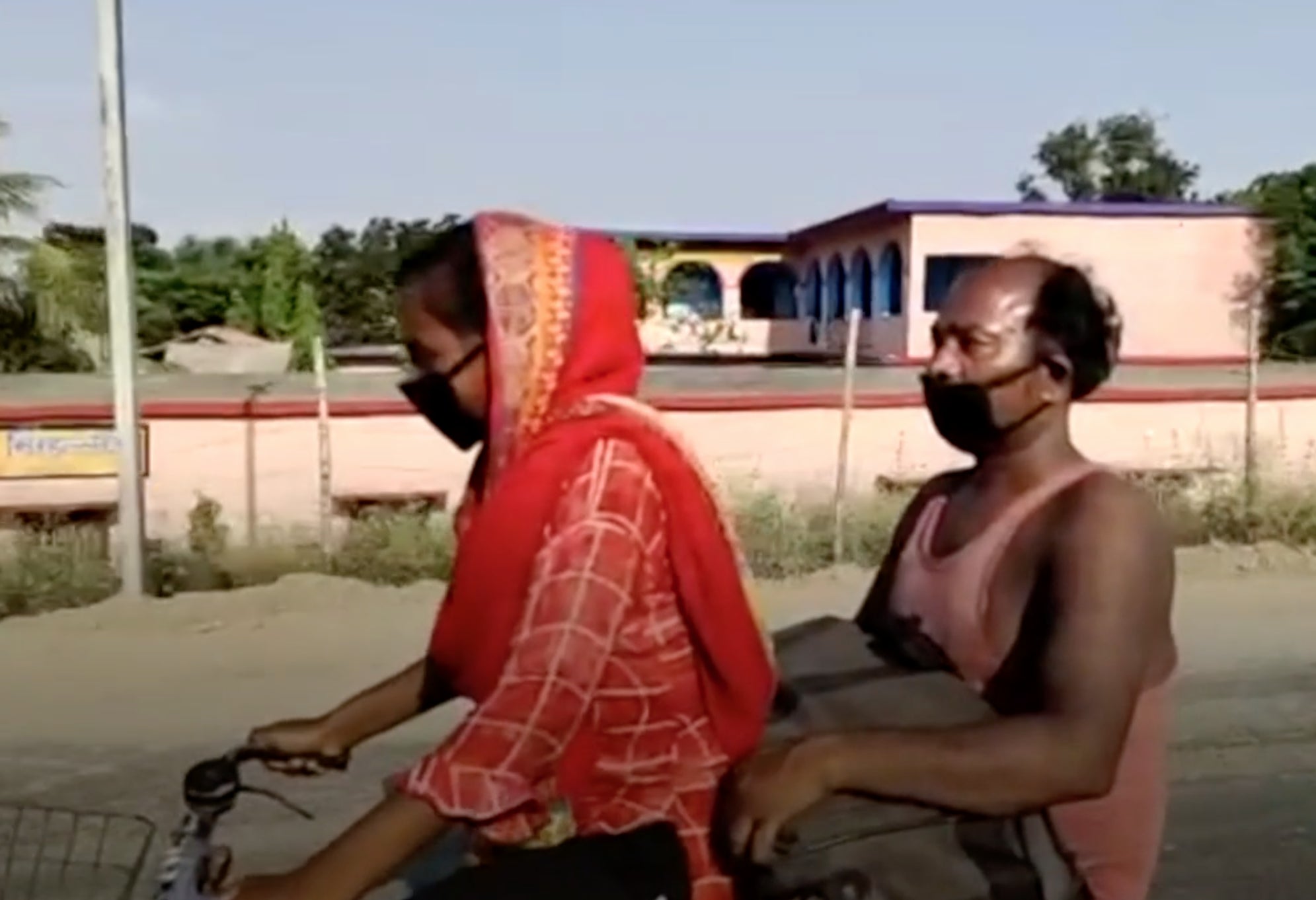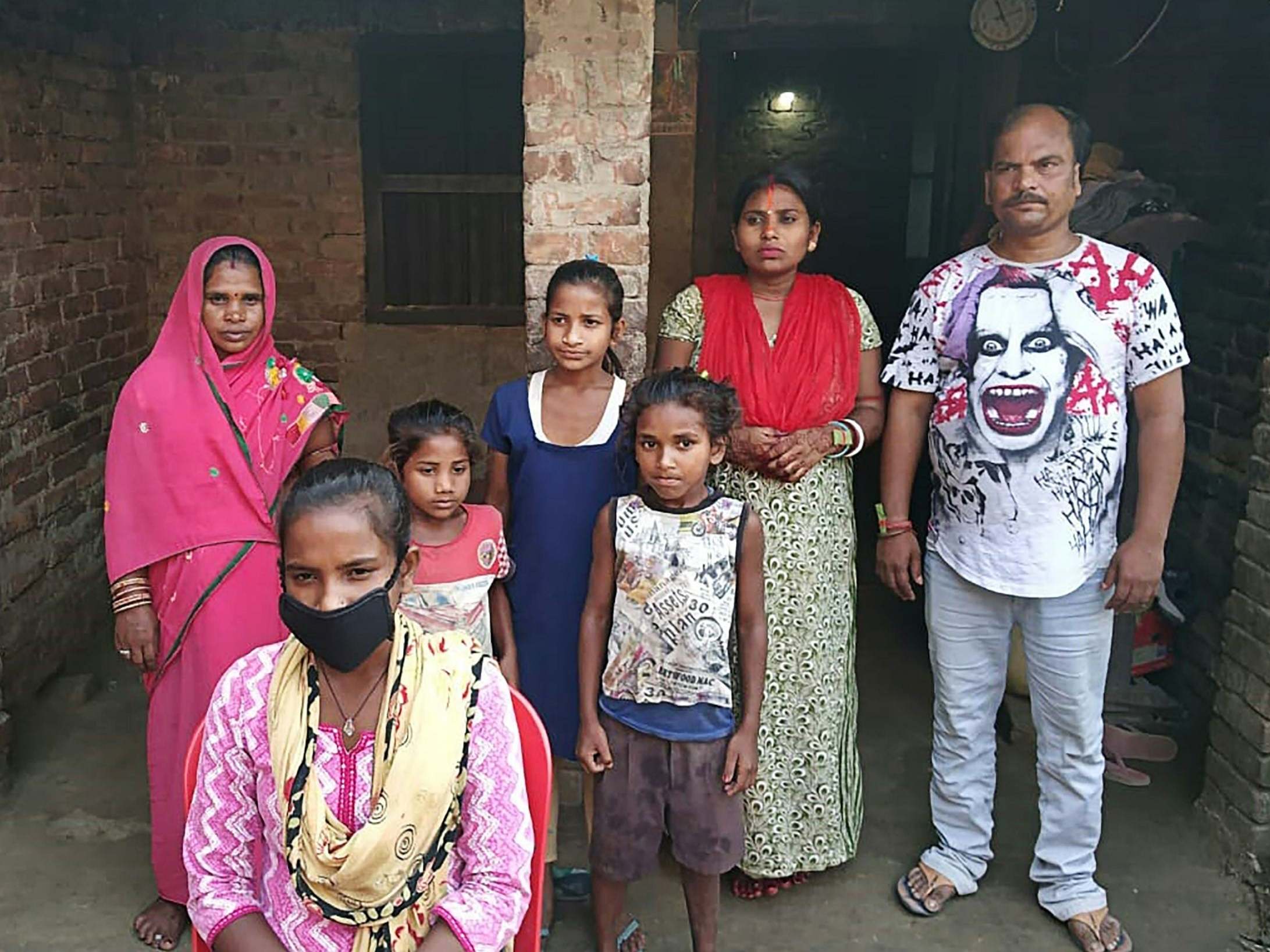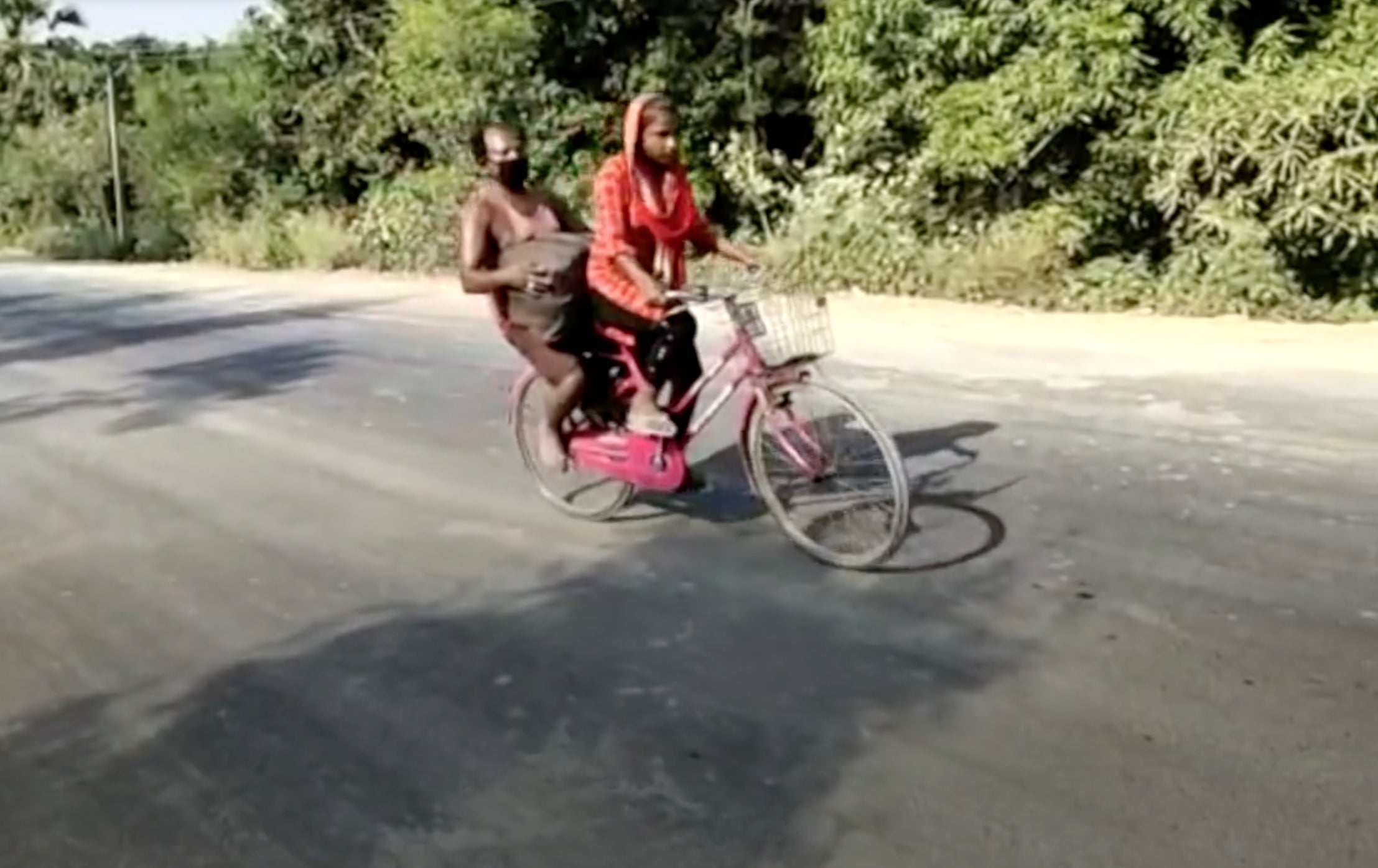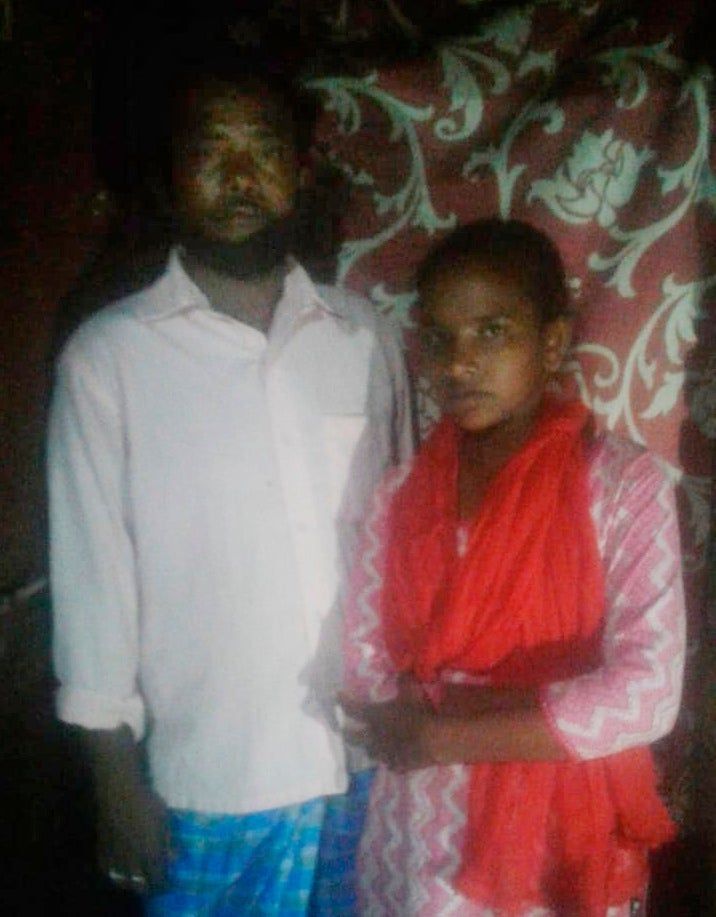‘I will get Papa home good’: The 15-year-old girl who cycled her father 700 miles home
Under India’s lockdown, many labourers rushed to leave New Delhi to get home to their villages, write Jeffrey Gettleman and Suhasini Raj. But one 15-year-old girl decided the only way she could get her injured father home was to cycle

Your support helps us to tell the story
From reproductive rights to climate change to Big Tech, The Independent is on the ground when the story is developing. Whether it's investigating the financials of Elon Musk's pro-Trump PAC or producing our latest documentary, 'The A Word', which shines a light on the American women fighting for reproductive rights, we know how important it is to parse out the facts from the messaging.
At such a critical moment in US history, we need reporters on the ground. Your donation allows us to keep sending journalists to speak to both sides of the story.
The Independent is trusted by Americans across the entire political spectrum. And unlike many other quality news outlets, we choose not to lock Americans out of our reporting and analysis with paywalls. We believe quality journalism should be available to everyone, paid for by those who can afford it.
Your support makes all the difference.She was a 15-year-old with a simple mission: bring papa home. Jyoti Kumari and her dad had nearly no money, no transport, and their village was halfway across India. And her dad, an out-of-work migrant labourer, was injured and could barely walk. So Jyoti told her dad: “Let me take you home.” He thought the idea was crazy but went along with it. She then jumped on a £16 purple bike bought with the last of their savings. With her dad perched on the rear, she pedalled from the outskirts of New Delhi to their home village, 700 miles away.“Don’t worry, mummy,” she reassured her mother along the way, using borrowed cellphones. “I will get Papa home good.”
During the past two months under India’s coronavirus lockdown, millions of migrant labourers and their families have poured out of India’s cities, desperate and penniless, as they try to get back to their native villages where they can rely on family networks to survive.
Many haven’t made it. Some have been crushed by trains; others run over by trucks. A few have simply collapsed while trudging down a long, hot highway, dead from exhaustion. But amid all this pain and sadness now emerges a tale of devotion and straight-up grit. The Indian press has seized upon this feel-good story, gushing about Jyoti the “lion-hearted”.
And a few days ago, the story got even better.
While resting up in her village, Jyoti received a call from the Cycling Federation of India. Convinced she had the right stuff, Onkar Singh, the federation’s chairman, invited her to New Delhi for a tryout with the national team.
“She has great talent,” Singh says.
Reached by phone on Friday in her village of Sirhulli, in Bihar, one of India’s poorest states, Jyoti said in a scratchy voice barely above a whisper, still sounding exhausted: “I’m elated, I really want to go.”
As India struggles with the coronavirus and the severe measures implemented to contain it, the plight of the nation’s migrant workers has become a crisis within a crisis.
Within hours of a national lockdown imposed on March 25, thousands upon thousands of migrant labourers began to bolt from the cities. Many had gravitated to urban areas for work and lived hand-to-mouth, as rickshaw pullers, tea sellers, brick haulers on construction sites.
But once the lockdown eviscerated their chances of getting any work, they feared running out of money and food, and began long, treacherous journeys back to their home villages.

Scholars estimate that tens of millions are on the move, the biggest migration of humans across the subcontinent since the partition of India and Pakistan in 1947.
When it becomes a matter of survival, says Priya Deshingkar, a professor of migration and development at the University of Sussex, migrant labourers “will try to go home, because that is where their real social safety net lies”.
That’s exactly why Jyoti hit the road.
Her father, Mohan Paswan, a rickshaw driver from a lower rung of India’s caste system, was injured in a traffic accident in January and was running out of money even before the lockdown. He was among the legions of migrant workers performing menial jobs in the shadows of Gurugram, a satellite city of New Delhi and home to corridors of shimmering glass towers and many millionaires.
As for how much she actually rode versus the help she received from trucks, Singh acknowledged that maybe the story had become a bit stretched, totally understandable in times like these
Jyoti left their village in Bihar to care for Paswan. She had dropped out of school a year ago because the family didn’t have enough money. Things got even worse after the lockdown, with their landlord threatening to kick them out and then cutting off their electricity.
When Jyoti came up with the escape plan, her father shook his head.
“I said, ‘Look, daughter, it’s not four or five kilometres that you will drag me from here. It’s 1200-1300 kilometres. How will we go?” he said in a video broadcast by the BBC’s Hindi service.
The two bought a simple girl’s bike for the equivalent of about £16. On May 8, they set off, Jyoti at the handlebars, dad sitting pillion. Jyoti was pretty confident on a bike, having ridden a lot in her village.

Many days they had little food. They slept at petrol stations. They lived off the generosity of strangers. Jyoti said that except for one short lift on a truck, she pedalled nearly 100 miles a day. It wasn’t easy. Her father is big, and he was carrying a bag.
As they moved down the long roads under the withering sun, many people teased them, saying it was ridiculous for a girl to pedal while her father sat on the back.
“Father would become upset when he heard such things, but I told him not to worry as people did not know that he was hurt,” Jyoti told an interviewer at The Wire, an Indian publication. (Over the past few days, she has done a lot of interviews).
After they arrived in their village last weekend, her father went into a quarantine centre – many states in India have tried to sequester migrant labourers returning from the cities, to stop the coronavirus from reaching deep into the countryside. How well that is working is unclear.

As the lockdown has relaxed, infections are rising quickly. India has reported around 120,000, its curve one of the steepest among large countries. Many health experts believe the real numbers are even higher but hidden because of India’s relatively low rates of testing.
Jyoti’s mother convinced village elders to let her quarantine at home. She was exhausted and soon besieged by reporters.
Then, a few days later, on Thursday morning, she got The Call.
The Cycling Federation of India, which scouts young talent and sends the best to international competitions, including the Olympics, tracked her down through a journalist. Singh, the chairman, says he had been moved by how far she pedalled with a heavy person on the back. “And luggage,” Singh is quick to add.
The federation is planning to bring her to New Delhi via “something comfortable, like an AC train”, he says, referring to the air-conditioned service. She will then do a series of cycling tests.
As for how much she actually rode versus the help she received from trucks, Singh acknowledges that maybe the story had become a bit stretched, totally understandable in times like these.
But one thing is not in doubt, Singh says.
“She has guts.”
© The New York Times
Join our commenting forum
Join thought-provoking conversations, follow other Independent readers and see their replies
Comments